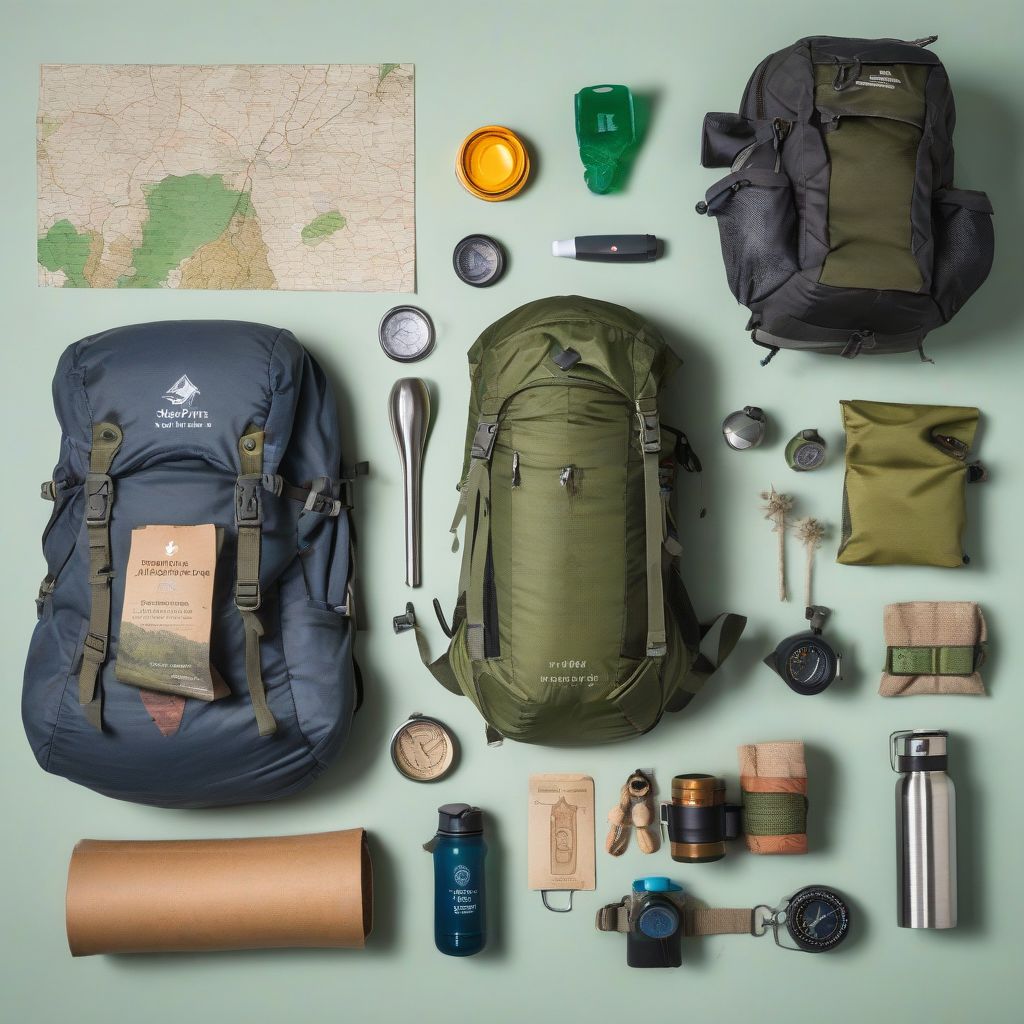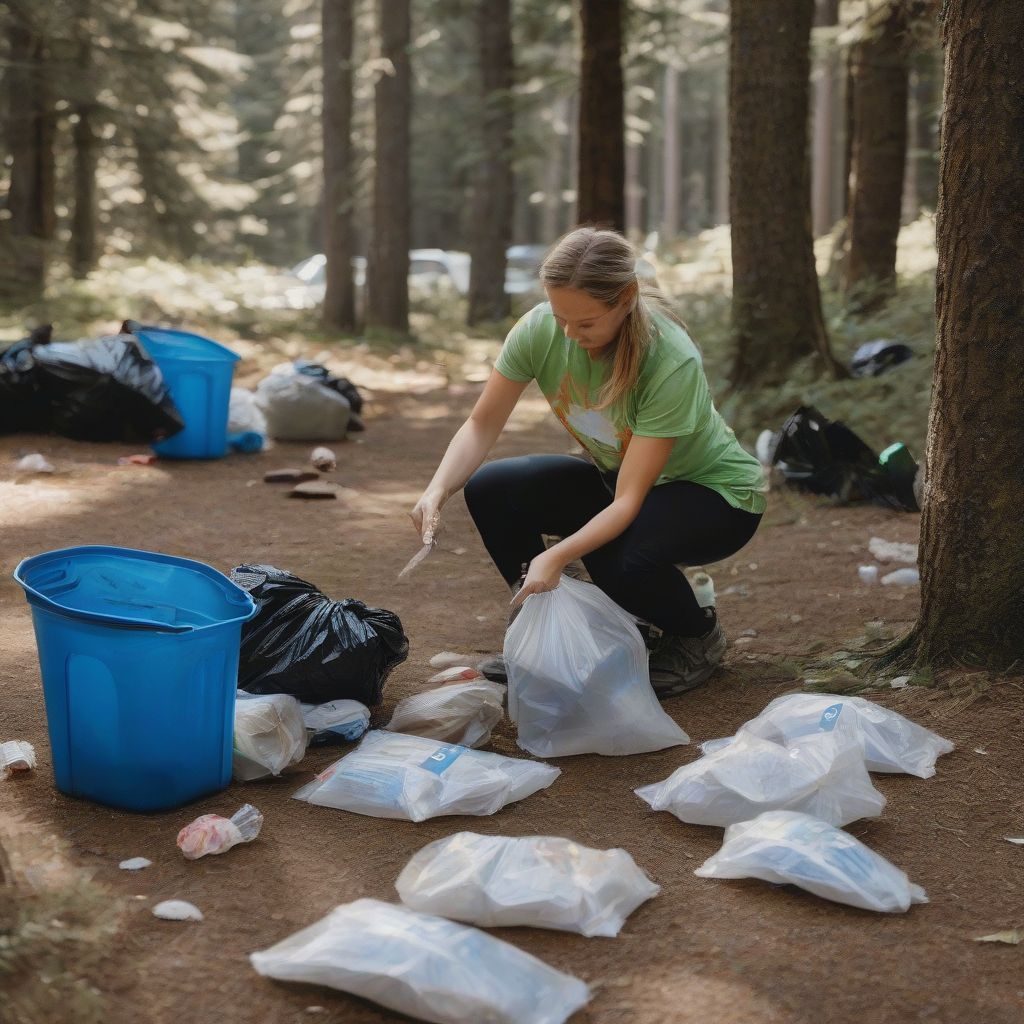Imagine this: you’re nestled in a secluded forest clearing, the air crisp and clean, the only sound the gentle crackling of a campfire. As you sip your morning coffee, you take in the breathtaking beauty of nature, untouched and pristine. This is the magic of camping – a chance to connect with the great outdoors and recharge your soul. But with this privilege comes responsibility – the responsibility to protect and preserve these wild spaces for generations to come.
As a nutritionist and meal prep coach, I’m passionate about helping people live healthier lives, and that includes protecting the health of our planet. That’s why sustainable camping practices are so important. By minimizing our impact, we can enjoy the beauty of nature while ensuring it remains for future adventurers.
Planning Your Eco-Friendly Adventure
Before you pack your bags, consider these sustainable camping tips:
1. Choose Your Campsite Wisely
- Opt for established campsites: Stick to designated areas to minimize damage to vegetation and soil.
- Respect campsite limits: Overcrowding can strain resources and harm the environment.
- Practice Leave No Trace principles: Pack out everything you pack in, including trash, food scraps, and even biodegradable items like banana peels.
2. Pack Smart and Light
- Reusable over disposable: Ditch single-use plastics and opt for reusable water bottles, food containers, and cutlery.
- Eco-friendly toiletries: Choose biodegradable soap, shampoo, and sunscreen to minimize pollution.
- Ditch the disposables: Pack cloth napkins and towels instead of paper products.
Sustainable Camping Gear: Making Eco-Conscious Choices
Investing in durable, eco-friendly gear is a key step towards sustainable camping:
- Sustainable tents: Look for tents made from recycled materials or those with a long lifespan to reduce waste.
- Solar-powered solutions: Harness the power of the sun with portable solar panels to charge your devices.
- Choose LED lighting: Energy-efficient LED lanterns and headlamps are brighter and longer-lasting than traditional options.
 Sustainable Camping Gear
Sustainable Camping Gear
Camp Cooking: Fueling Your Adventure Responsibly
Sustainable camping extends to your meal prep as well. Here’s how to minimize your impact while cooking outdoors:
1. Meal Planning and Food Storage
- Plan ahead: Pack only what you need to reduce food waste and minimize packaging.
- Choose local and organic: Support local farmers and reduce your carbon footprint by opting for locally sourced, organic produce.
- Store food properly: Use reusable containers and coolers to prevent leaks and keep animals away from your campsite.
2. Eco-Friendly Cooking Methods
- Portable stoves: Choose fuel-efficient stoves that minimize fuel consumption and emissions.
- Avoid disposable propane canisters: Opt for refillable propane tanks or consider alternative cooking methods.
- Campfire safety: If building a campfire, use existing fire rings, burn only locally sourced firewood, and ensure it’s completely extinguished before leaving.
Conserving Water: A Precious Resource
Water is precious, especially in the great outdoors. Practice these water conservation tips while camping:
- Minimize water usage: Take shorter showers, wash dishes efficiently, and reuse water whenever possible.
- Use biodegradable soap: Choose eco-friendly soaps and detergents that won’t harm waterways.
- Dispose of wastewater properly: Don’t wash dishes or dispose of greywater directly in lakes or streams. Use designated disposal areas or pack it out.
Sustainable Waste Management
- Pack it in, pack it out: This golden rule of camping ensures you leave no trace of your presence.
- Proper waste disposal: Separate your trash and recyclables and dispose of them responsibly in designated bins.
- Composting on the go: Consider packing a small, portable composting system for food scraps if allowed in the area.
 Sustainable Camping Waste Management
Sustainable Camping Waste Management
Respecting Wildlife and Nature
- Observe wildlife from a distance: Never approach or feed wild animals. It can be harmful to their health and alter their natural behavior.
- Stay on designated trails: This helps prevent soil erosion and protects fragile ecosystems.
- Leave no trace of your campsite: Before you leave, ensure your campsite is clean and free of any trash or personal belongings.
Sustainable Camping: It Starts with You
Protecting our planet requires a collective effort, and sustainable camping is a powerful way to make a difference. By adopting these practices, you can enjoy the beauty of nature while minimizing your impact and preserving it for future generations. Remember, every small step counts towards creating a more sustainable future.
Ready to Embrace Sustainable Camping?
Share your thoughts and experiences with us in the comments below! Let’s inspire each other to protect the planet one campsite at a time.
[amazon bestseller=”camping gear”]
